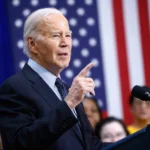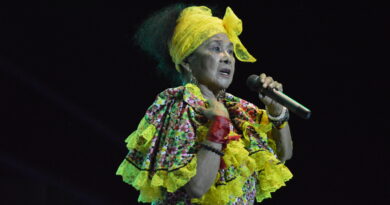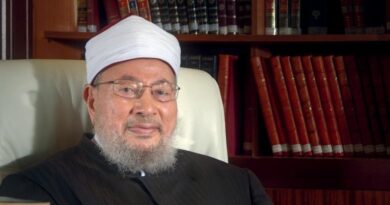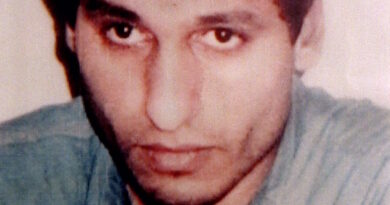Ben Gvir and the unstoppable drift of Israel
EUGENIO GARCIA GASCON
On October 13, Deputy Itamar Ben Gvir drew his pistol against a group of Palestinians who were protesting, some throwing stones, against the Israeli military occupation in the Sheikh Jarrah neighborhood, in the Arab sector of Jerusalem. Ben Gvir did not actually fire the gun, although he encouraged the policemen to do so. It is not the first time that this deputy has drawn his gun, but this time he has done so a few days before the legislative elections scheduled for November 1. His clear objective is to attract radicalized voters, who abound more and more in the country every day.
The previous afternoon, Wednesday, the leader of Otzma Yehudit (Jewish Force) had held a private meeting with Benjamin Netanyahu, leader of Likud, the main party in the Knesset. It transpired that both agreed not to steal votes from each other during the campaign and Netanyahu urged Ben Gvir to "win new votes" to contribute them to the coalition he leads in order to obtain a sufficient bloc to govern. He also promised to phone him first if the bloc wins an absolute majority of 61 seats.
To understand what is happening in Israel, and in ever-widening regions of the West, one has to go back a few years. The strong nationalism that prevails in the country, and that Israel openly exports wherever it can, including Eastern and Western Europe, is key. It is not a new phenomenon but it is taking on radical shades of which the alliance between Netanyahu and Ben Gvir is only one additional link. Even more serious is that in Israel identitarian nationalism has allied itself with a no less fierce and identitarian religionism that is also of the extreme right, even though it sometimes coarsely disguises itself as leftist.
To date, Ben Gvir has nine convictions for inciting racism, resisting the police, causing a disturbance, possession and distribution of terrorist material, and twice for supporting a terrorist organization. In addition, for years he has been a highly visible figure in his role as a lawyer, defending a large number of young Jews in the occupied West Bank who were accused of terrorism or simply breaking the law for nationalistic reasons. With all this baggage Ben Gvir, 46, is in the spotlight of the current election campaign. In fact, for many years his unmistakable person has appeared on television and in other media with great regularity, always with a challenging and provocative attitude.
No one doubts that this attitude, just like when he draws his gun, will bring him a considerable number of votes that, according to the polls, will make him the third force in the Knesset. Times are changing everywhere and Israel is ahead. The thrust of the right, and of the extreme right, is dominant, and Israeli nationalism is accompanied by the inevitable religionism, two ideologies that have been imposed for a long time and continue to grow. Itamar Ben Gvir is a central reference in this movement, but it would be unfair to think that he alone has got there, since the disturbing emergence of his figure is the result of the flourishing of these two ideologies that for decades, and increasingly intensity, are the usual breeding ground for young Israelis.
The son of immigrants from Iraq and Kurdistan, Ben Gvir began to acquire religious and political awareness at the age of 12. He studied at a yeshiva, or rabbinical school, founded by Rabbi Meir Kahane, one of the most radical Jews, who was assassinated in New York in 1990. He never served in the army, something he explains by saying that the military did not want to recruit him for his early militancy in organizations considered terrorist.
Some say that Ben Gvir is an agent of the Shin Bet, the secret services, but he manages to always appear alongside the most radical Jews. It gives them the same support when they build a settlement in the occupied territories as when they sit in the dock for any other reason. The point is that he is always at his side, inciting them to violence and provoking the Palestinians. He has six children and lives in the Kiryat Arba settlement, next to the occupied city of Hebron, south of Jerusalem.
On October 1, the Hebrew media reported the discomfort of Democratic Senator Robert Menendez, chairman of the US Senate Foreign Relations Committee, who discreetly admonished Netanyahu not to establish an alliance with Ben Gvir. The veteran Menendez is a close associate of Israel who always sides with the more conservative Republicans when the Jewish state is involved. Netanyahu ignored Menendez, though he has so far refused to take photos with Ben Gvir. Senator Menendez's announcement shows the reluctance that this ultra-nationalist and ultra-religious leader arouses, even among the American politicians closest to Israel.
The phenomenon of nationalist and identity religionist right-wing does not bode well for Israel gaining more stability after the November 1 elections. The trend towards polarization is clear, the technical tie that the polls give indicates that the principles of democracy are in danger since, whatever happens at the polls, there will be no lack of animation. Neither the victory of some nor that of others will bring more calm and balance to the country. The polarization that Ben Gvir embodies so well brings with it more polarization, so that it is easy to foresee more violence, more racism, more hostility and more sectarianism, that is, more nationalism and more religionism. Furthermore, he confirms that the application of only apparent democratic procedures, as in the case of Israel, can lead to non-democracy, to tyranny.
Eugenio Garcia Gascon h.He has been a Jerusalem correspondent for 29 years. He is a Cirilo Rodríguez journalism award.













